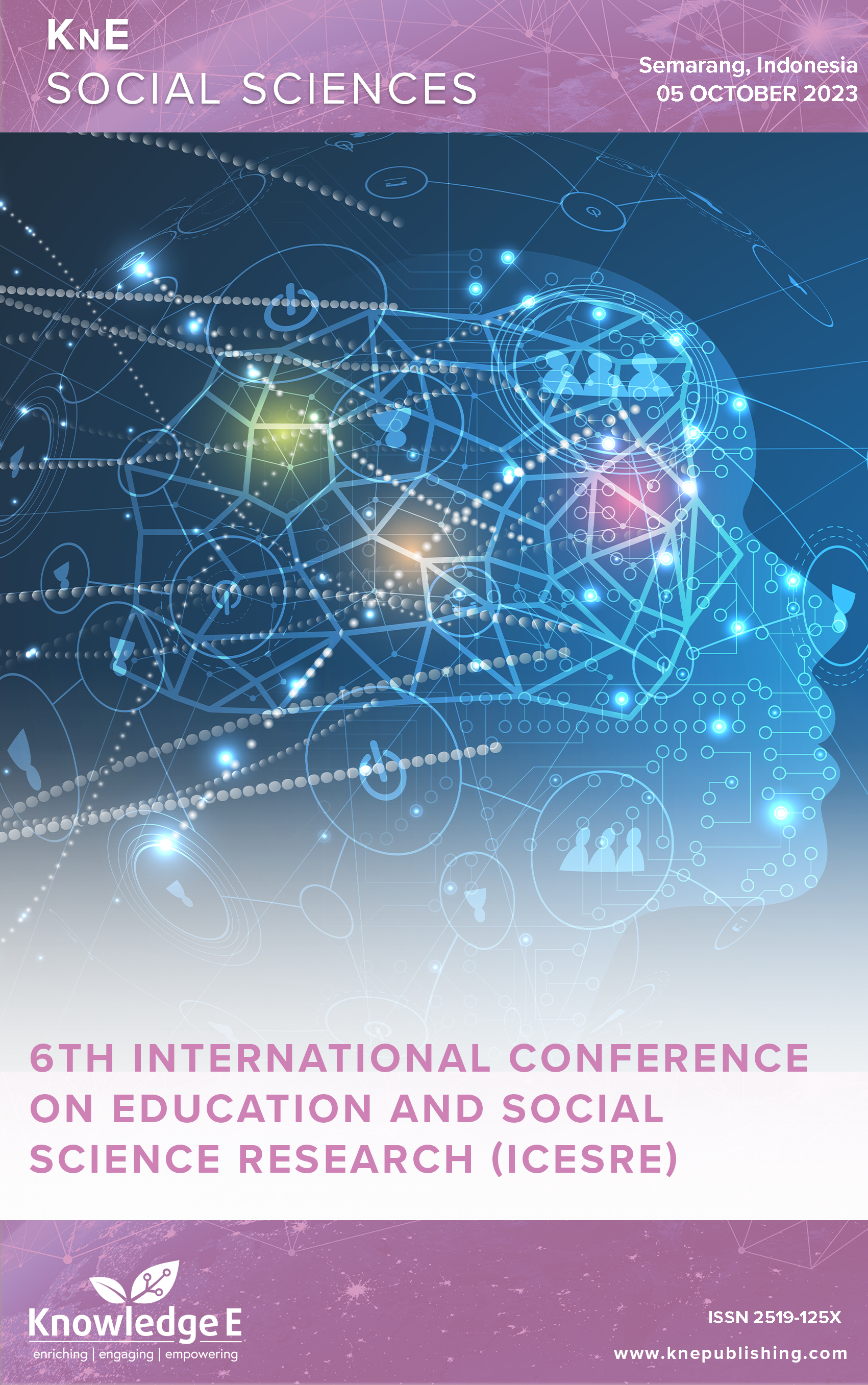Development of a Spatial Geometry Instrument Based on Minimum Competency Assessment
DOI:
https://doi.org/10.18502/kss.v9i6.15322Abstract
This research aims to develop a spatial geometry instrument based on minimum competency assessment. Spatial geometry is a field of mathematics that is important in developing an understanding of shape, size, and spatial relationships between objects in 3-dimensional space. Minimum competency assessment is an approach to measuring the basic understanding that individuals must have in a field of science. The research method used in this research involves the instrument development stage which consists of identifying minimum competencies in spatial geometry, designing the assessment instrument, validation by experts, and testing the instrument on a group of participants. The results of this research are a minimum competency assessment instrument in spatial geometry that can be used to measure basic understanding in this field. It is hoped that this instrument can be a useful tool in curriculum development and assessment in the field of spatial geometry, as well as assist educators in identifying students’ level of understanding of basic concepts in spatial geometry. Apart from that this research also contributes to the development of a minimum competency assessment methodology in the context of mathematics and other fields of science.
Keywords: spatial geometry, minimum competency assessment, contextual
References
Yilmaz HB. On the development and measurement of spatial ability.
International Electronic Journal of Elementary Education. 2009;1(2):83-96.
Guay RB, McDaniel ED. The relationship between mathematics achievement and spatial
abilities among elementary school children. Journal for Research in
Mathematics Education. 1977 May 1;8(3):211-5. DOI: https://doi.org/10.5951/jresematheduc.8.3.0211
Sulistyani AP, Windasari V, Rodiyah IW, Muliawati NE. Eksplorasi Etnomatematika
Rumah Adat Joglo Tulungagung. Media Pendidikan Matematika. 2019 Jul 7;7(1):22-8. DOI: https://doi.org/10.33394/mpm.v7i1.1537
Wahyuni A, Tias AA, Sani B. Peran etnomatematika dalam membangun karakter bangsa. In Makalah Seminar Nasional Matematika dan Pendidikan Matematika, Prosiding, Jurusan Pendidikan Matematika FMIPA UNY, Yogyakarta: UNY 2013 Nov (Vol. 1, No. 1, pp. 114-118).
Kusumaningsih W, Supandi S, Ariyanto L. Ethnomathematics for congruence concept: A didactical design in a mathematics classroom. InJournal of Physics: ConferenceSeries 2020 Oct 1 (Vol. 1663, No. 1, p. 012036). IOP Publishing. DOI: https://doi.org/10.1088/1742-6596/1663/1/012036
Rosa M, Gavarrete ME. An ethnomathematics overview: An introduction. Ethnomathematics and its diverse approaches for Mathematics Education. 2017:3-19. DOI: https://doi.org/10.1007/978-3-319-59220-6_1
Turmudi T. Ethnomathematics: Apa Mengapa dan Bagaimana Implementasi
dalam Pembelajaran Matematika di Kelas. InSENATIK 2017 2017 Sep 15.
Sopiansyah D, Masruroh S, Zaqiah QY, Erihadiana M. Konsep dan
Implementasi Kurikulum MBKM (Merdeka Belajar Kampus Merdeka). Reslaj: Religion
Education Social Laa Roiba Journal. 2022;4(1):34-41. DOI: https://doi.org/10.47467/reslaj.v4i1.458
Malaikosa YM, Permata SD. Implementasi ANBK Terhadap Kesiapan Mental Peserta Didik. Education and Learning of Elementary School. 2021 Dec 28;2(01):1-8.
Asesmen P. Pembelajaran Badan Penelitian dan Pengembangan dan Perbukuan
Kementerian Pendidikan dan Kebudayaan. Desain Pengembangan Soal AKM. 2020

